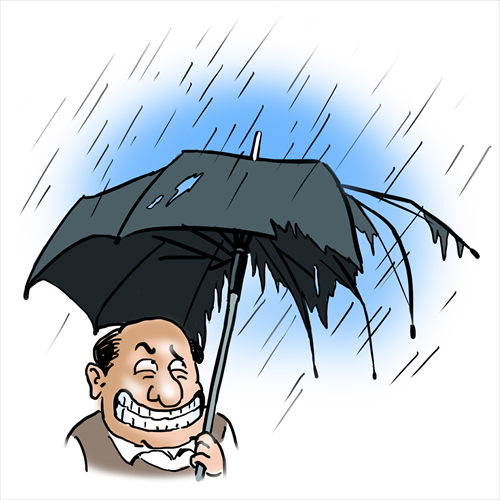HOME >> OP-ED
Fight for justice can’t be limited to just us
By Rong Xiaoqing Source:Global Times Published: 2015-2-26 17:23:01

Illustration: Liu Rui/GT
The Lunar New Year has been received with heavy hearts by many Chinese in the US, especially from those living in New York. Only nine days before the Year of the Sheep began, a grand jury decided to indict a Chinese-American police officer for killing a young black man, triggering anger in the community. Throughout the New Year celebration, a petition asking the prosecutor to withdraw the indictment has been circulating from the west to the east coasts. More than 100,000 people have signed it.The petitioners have good reasons to protest, but it also has to be said that the grand jury's decision is a reasonable one.
The NYPD officer, Peter Liang, had only been on the force for less than 18 months when he was dispatched to patrol an area with a high crime rate in Brooklyn together with his partner who was also a rookie cop. On a dark stairway of a government housing project, Liang, who had his finger on the trigger of his gun, accidentally discharged and killed Akai Gurley, an innocent African-American man who chose to use the stairway because the elevator was too slow.
Liang's case happened amid a slew of conflicts between the police and minority communities in New York and elsewhere. Not long before Liang's indictment, cops who were responsible for the death of African-American citizens in Ferguson, Missouri and New York were not indicted, setting off nationwide protests.
The case that is frequently mentioned together with Liang's happened on New York's Staten Island. A group of police officers tried to arrest an African-American man, Eric Garner, for selling illegally smuggled cigarettes. Garner struggled and a police officer put him in a chokehold while several officers pushed him to the ground.
The 350-pound Garner complained he couldn't breathe. He soon lost consciousness and then died. The encounter was videotaped by an onlooker, but a grand jury still decided on December 3 not to indict Daniel Pantaleo, the white cop who was most responsible for Garner's death.
By the standard of the law, Liang's indictment is not challengeable at all. Police officers or anyone else should be put under court's examination when they kill someone innocent, intentionally or not. An indictment, of course, doesn't mean the person in question will be convicted. It only gives the judicial system an opportunity to make a judgment.
But when the two grand jury decisions came one after the other and offered a white police officer and a Chinese one completely different fates, they made the judicial system appear unfair. As the New York chapter of the Organization of Chinese Americans, an advocacy organization, said in a statement: "In order for the public to have confidence in our judicial system … Our judicial system cannot engage in selective prosecution. Instead, it must apply the same standards to all."
The cases shed light on a broader dilemma: What should we do when fairness and correctness are on different sides of a battle? In a modern society where people don't only seek survival but also like to justify their survival, this has become a question that we have to face on almost a daily basis.
For example, if everyone else is jaywalking, it may seem fair for you to do the same. But it is not right. And to issue a hefty ticket to a street fruit vendor for cheating with the scales might be the right thing to do. But when the big banks whose greed caused ordinary people to lose their life savings are not punished, the ticket for the street vendor can easily look unfair.
Making logical and correct decisions should be the ultimate goal of human society. But in practice, people tend to care more about fairness than correctness because the latter may have objective measures and the former is based on a comparison between others and ourselves. Therefore, it is more directly associated with our personal interests.
That's why when talking about fairness few people are able to look at things beyond the limits of their own skin color. So even when the prosecutor emphasized that Liang's indictment has nothing to do with his being Chinese, many Chinese still don't believe him.
This doesn't mean fairness and correctness cannot cross paths. In the two cases, what went wrong is not Liang's indictment but the failure to do the same to Pantaleo. If the previous mistake hadn't been made, Liang's indictment wouldn't feel like such a blow to the Chinese community. Unfortunately, few Chinese participated in the previous protests because it seemed to us like a white and black conflict that has nothing to do with our problems.
Little did we realize then that injustice, no matter how far it seems from us, will take a toll on everyone sooner or later.
The author is a New York-based journalist. rong_xiaoqing@hotmail.com
Posted in: Columnists, Viewpoint, Rong Xiaoqing